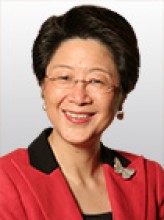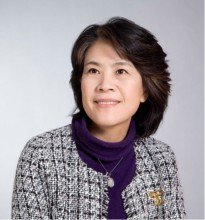Women on Boards Hong Kong 2019: Q4


Percentage of Women on Hang Seng Index (HSI) Boards
2 October 2019
We are disappointed to report that the overall percentage of women on the boards of Hong Kong’s Hang Seng Index companies has dropped over the last quarter from 13.5% to 13.4%, and since January 2019, has declined 0.5% from a high of 13.9%
Digging into the numbers, the decrease since last quarter can be attributed to the loss of one board seat (held by a woman – Mary Ma – who sadly passed away in August 2019.) Factoring this in, the total number of directorships held by women has decreased to 80, where it sat in Q2 of this year and the total number of directorships held by either men or women has dropped to 597 from 598 the previous quarter.
Since January, the number of women appointed to HSI board roles has been a paltry five (including Mary Ma). Unless there is a significant improvement in Q4, 2019 could be the worst year for women on boards since Community Business started tracking progress in 2009.
As we enter the final phase of 2019 and look ahead to the next year, it is discouraging to see an overall stagnation in Hong Kong with regard to female representation on boards. At the same time, we see Singapore continuing to surge ahead by achieving 15.7% in H1 2019.
We must reiterate again our message that having a gender diverse board is not about optics, but about solidifying your business. A board made up of different, even conflicting, perspectives and life experiences encourages a culture of questioning and robust discussion. This will not only help to mitigate risks and strengthen governance but ensure a higher probability of business success, which is backed by a growing body of research. In these volatile and disruptive times, companies should demand a strong, diverse board that futureproofs their existence.
Summary of Gender Diversity on HSI Boards
Companies with at least one female director
- Jan 2019
- Jan 2018
- Jan 2017
- Jan 2016
Companies with multiple female directors
- Jan 2019
- Jan 2018
- Jan 2017
- Jan 2016
Companies with female executive directors
- Jan 2019
- Jan 2018
- Jan 2017
- Jan 2016
Companies with female CEOs
- Jan 2019
- Jan 2018
- Jan 2017
- Jan 2016
Companies with all-male boards
- Jan 2019
- Jan 2018
- Jan 2017
- Jan 2016
2 October 2019
Again, we are disappointed to report minimal movement across all our diversity markers. There was marginal progress among two indicators this last quarter: companies with at least one female director, rising from 76.0% to 78.0%, and a reduction in all-male boards – dropping from 12 to 11 (22.0%) notably due to the appointment of Yang Ke to the Tencent board.
Companies with a female CEO and those with female executive directors remained constant at 1 (2.0%) and 16 (32.0%) respectively and sadly, the number of companies with multiple female directors dropped from 21 to 20 (40.0%).
Women on Boards League Table: HSI
Most eventful
Top 10
- % Women
- 38.50%
- Board Size
- 13
- No. of Women
- 5
- Stock Code
- 5
- Chairperson
- Tucker, Mark Edward
- Female Directors
- van der Meer Mohr, Pauline
Lee, Irene Yun Lien
Miller, Heidi
Casey, Kathleen Louise
Cha Shih, Laura May Lung
- % Women
- 38.50%
- Board Size
- 13
- No. of Women
- 5
- Stock Code
- 11
- Chairperson
- Ch'ien, Raymond Kuo Fung
- Female Directors
- Gan, Kathleen Chieh Huey
Cheang, Louisa Wai Wan
Kwan, Margaret Wing Han
Lee, Irene Yun Lien
Chiang, Lai Yuen
- % Women
- 36.40%
- Board Size
- 11
- No. of Women
- 4
- Stock Code
- 1177
- Chairperson
- Tse, Theresa Y Y
- Female Directors
- Cheng, Cheung Ling
Tse, Theresa Y Y
Li, Mingqin
Lu, Hong
- % Women
- 36.40%
- Board Size
- 11
- No. of Women
- 4
- Stock Code
- 823
- Chairperson
- Allen, Nicholas
- Female Directors
- Tse, Nancy
Tan, Poh Lee
Tan, May
Young, Elaine
- % Women
- 33.30%
- Board Size
- 9
- No. of Women
- 3
- Stock Code
- 1088
- Chairperson
- Wang, Xiangxi
- Female Directors
- Jiang, Bo
Tam, Maria Wai Chu
Zhong, Christina Yingjie
- % Women
- 25.00%
- Board Size
- 20
- No. of Women
- 5
- Stock Code
- 66
- Chairperson
- Auyeung, Rex Pak Kuen
- Female Directors
- Lee, Rose Wai Mun
Chan, Mable
Li Li, Lucia Ka Lai
Chan Yuen, Dorothy Tak Fai
Chan, Pamela Wong Shui
- % Women
- 25.00%
- Board Size
- 12
- No. of Women
- 3
- Stock Code
- 3988
- Chairperson
- Liu, Liange
- Female Directors
- Wang, Xiaoya
Xiao, Lihong
Chao, Angela A
- % Women
- 23.50%
- Board Size
- 17
- No. of Women
- 4
- Stock Code
- 1038
- Chairperson
- Li, Victor Tzar Kuoi
- Female Directors
- Chen, Tsien Hua
Kwok Lee, Eva
Lee Wong, Angelina Pui Ling
Sng, Sow Mei
- % Women
- 23.10%
- Board Size
- 13
- No. of Women
- 3
- Stock Code
- 1113
- Chairperson
- Li, Victor Tzar Kuoi
- Female Directors
- Hung, Katherine Siu Lin
Pau, Ezra Yee Wan
Woo, Grace Chia Ching
- % Women
- 21.40%
- Board Size
- 14
- No. of Women
- 3
- Stock Code
- 2
- Chairperson
- Kadoorie, Michael David
- Female Directors
- Tan, May Siew Boi
Mody, Zia
Law Fan, Fanny Chiu Fun
2 October 2019
The top five companies on our Women on Boards League Table remain unchanged this quarter as well as from our Q2 analysis. Hang Seng Bank retains the top spot at 38.5%, with HSBC moving up to join them in the top position. Sino Biopharmaceutical retains their 36.4 percentage, with Link Real Estate rising to meet them in joint third. China Shengua Energy remain in fifth, increasing their percentage to 33.3%.
Most notably this quarter Tencent rose 18 positions to 23rd due to the appointment of Yang Ke to their board, and Bank of Communications dropped 19 places to 35th with one of two female directors leaving the board.
Companies which do not have female directors
2 October 2019
This quarter saw a welcome reduction in the number of all-male boards this quarter from 12 to 11, with the appointment of Yang Ke to the Tencent board. Ke’s appointment also removes Tencent from the list of companies which have never had a female board member, reducing this number from 7 to 6 this quarter.
2 October 2019
Unless there is a surge in appointments at the end of 2019, this year will mark a low point in the number of female appointments made, with the count at 5. Women currently account for 5% of all Hang Seng Index directors appointed in 2019.
-

Ma, Mary Xuezheng 馬雪征
NED, Hong Kong Exchanges and Clearing Ltd (Appt: 24 Apr 2019)Mary Ma Xuezheng was appointed to the HKEX and the Swire Pacific boards this year, and sadly passed away in August 2019 at the age of 66. -

-

Lee, Velencia 李蕙蘭
Appt: 1 Jul 2019FD, Sino Land Company Ltd -

Ke, Yang 柯楊
Appt: 15 Aug 2019Tencent Holdings Ltd
2 October 2019
The additional new appointment made this quarter was to Yang Ke (Tencent). The appointment helped Tencent rise considerably in the rankings from 41 to 23rd.
Mary Ma (HKEX and Swire Pacific board member) sadly passed away in August 2019 at the age of 66.

Norway

United Kingdom

Australia

Canada

United States

Malaysia

New Zealand

Singapore

India

Hong Kong

Japan
There have been some small victories for countries around the globe. Most notably, Singapore and India have overtaken Hong Kong in the rankings for the first time, reporting 15.2% (Singapore) and 14.0% (India) women on their boards. Regionally, Malaysia reports the highest numbers, with 23.2% recorded. Both India and Malaysia have government quotas in place which may go some way to explaining their acceleration in recent years. Singapore, via the government-backed Council for Board Diversity*, has enacted a multi-pronged campaign involving naming-and-shaming, engaging with board decision makers, maintaining a list of female candidates, and showcasing through data the impact on corporate performance. Inspired by this galvanised action, vocal support from male champions at the board level has increased dramatically. All of these factors have led to rapid progress in Singapore, with female board appointments reaching a record high of 24.0% during 2018.
- Previously named ‘Diversity Action Committee’ and starting in January 2019, its scope has expanded to also include statutory boards and non-profit organisations.
After a promising bump in Q3 we are disappointed to see the overall representation of women on Hong Kong’s top 50 listed companies' boards drop again. Of a total 60 appointments made this year, only 4 have been to women, and we are sad to report that one of those women, Mary Ma, passed away in August.
It is frustrating to see that Hong Kong continues to buck global and regional trends in the advancement of women’s representation on boards. Complacency across the board in Hong Kong has become pervasive and progress continues to be contained within a few enlightened companies. Given the political and economic climate in Hong Kong, the futureproofing of boardrooms is even more urgent. If Hong Kong’s boardrooms do not actively strive to represent the wider population, how would they expect to understand the needs and expectations of the community? This will not only harm business prospects within the city but will put Hong Kong at a disadvantage on the global stage.
